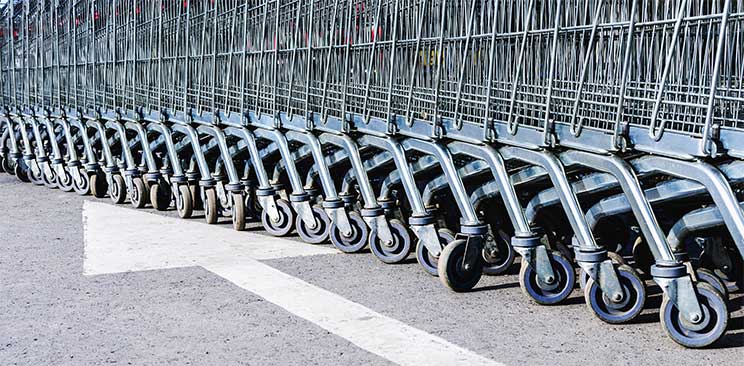Woolworths has signed a proactive compliance deed that commits the supermarket retailer to monitoring and regulating its network of trolley services to ensure contractors at its sites are paying their workers correctly and meeting all workplace obligations.
This includes requiring contractors to keep accurate employment and shift records by using a time-keeping system that includes geofencing capability – enabling software to trigger a response when a mobile device enters or leaves a defined area – and uses either a biometric identifier or unique code for each employee.
Under the deed, Woolworths is also required to audit the employee pay records of businesses tendering for trolley-collection contracts, and must audit yearly all contractors providing trolley-collection services on its sites.
Any trolley collector deemed to have been underpaid since July 1, 2014 will also be back-paid their due entitlements either by their direct employer or, where this is not possible, through ex-gratia payments made by Woolworths.
Fair Work Ombudsman Natalie James said the deed would help address the unlawful practices that have led to widespread exploitation and underpayment of workers within Woolworths’ trolley-collection supply chain.
The regulator’s June 2016 inquiry report into the procurement of trolley-collection services at Woolworths sites uncovered patterns of serious non-compliance among contractors, with 79 per cent of sites found to have compliance issues.
“Our inquiry found that Woolworths’ existing governance systems were not effective in addressing these issues, contributing to a culture of non-compliance by its contractors,” Ms James said.
“I am pleased that Woolworths has demonstrated its positive commitment to improving its management of contractors by entering into this compliance partnership with the Fair Work Ombudsman.”
Under the deed, which took effect on September 22, Woolworths agrees to the following key measures:
- Ensuring employees records are accurately maintained.
- Rectifying underpayments.
- Auditing contractors yearly.
- Building a culture of compliance.
- Establishing an internal compliance team.
- Promoting accountability at all levels of the supply chain.
- Yearly reviews of contracting arrangements and enhanced due diligence for new contract arrangements.
- Promoting the Speak Up service.
- Providing ongoing training.
Woolworths Head of Facilities Management Trent Mason said the company had worked collaboratively with the Fair Work Ombudsman throughout this process and had already implemented many of the obligations set by the deed.
“Woolworths will continue to assume overall responsibility for its trolley-collection services, including continuing to ensure contractors fully comply with Australian workplace laws across its network of sites,” he said.
“Compliance with all relevant laws and contractual obligations by service providers is a fundamental part of working alongside Woolworths.”
Ms James said the signing of the deed was a significant milestone following a decade of work by her agency and its predecessors in addressing the exploitation of vulnerable workers in the trolley-collection sector.
“With Australia’s two largest supermarket retailers now accepting a moral and ethical responsibility for ensuring the trolley collectors on their sites are being treated fairly, regardless of who their employer is, we hope that rampant underpayment of this vulnerable cohort becomes a thing of the past,” she said.




